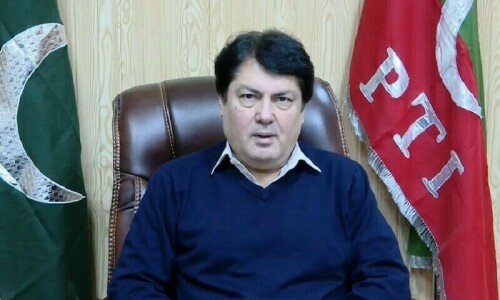Do TV plays based on novels boost the publishing industry or is it the other way around, asks OA.
Urdu novels by upcoming writers have played an important role in the revival of Pakistan’s drama industry. Be it Umera Ahmed’s Meri Zaat Zarra-i-Bay Nishan or Farhat Ishtiaq’s Humsafar, plays based on these bestsellers have garnered high viewership for their channel.But has this trend been helpful to the writers in general and the publishing industry in particular? Has it made people go for magazines that feature the initial version of these ‘to-be-bestsellers’ or has it distanced them from reading books altogether — why bother reading when you can watch it on TV?
Najeehuddin of Liberty Books feels that most of the plays have actually banked on the popularity of bestsellers, rather than the other way round. “Novels by prominent writers like Umera Ahmed and Farhat Ishtiaq are published with the support of massive marketing. Many people have either read them in serial form (in magazines) or wait for the novels that publish the complete story. TV directors take up that novel and develop a script around that, which gets printed as an ‘as seen on TV’ edition later. That’s how the cycle goes in the publishing industry which gives more than it takes from the TV industry.”
The trend of using bestsellers as script is not new in Pakistan. In the ’60s and the ’70s, many bestselling works were transformed into films and TV serials. Razia Butt’s novels Naila, Saiqa and Anila went on to become blockbusters on the big screen, while Fatima Surayya Bajiya successfully adapted A.R. Khatoon’s Shama and Afshaan during the mid ’70s and the early ’80s, and Zubaida Khatoon’s Uroosa in the early ’90s for TV
Her adaptation of Mirza Quleech Baig’s Sindhi novel Zeenat was also a huge hit, but then television content took a nosedive and Pakistani viewers switched loyalties to soap operas from across the border.
It took the might of young novelists, Umera Ahmed and Farhat Ishtiaq being the most prominent, who stormed the scene with their novels and made people take notice. Although Umera Ahmed’s first adaptation for TV Wujood-e-Laraib didn’t break any records when it was aired in 2004, it led the way for numerous successful adaptations of her novels.
These include the extremely popular Meri Zaat Zarra-i-Benishan, Mein Ne Khawabon Ka Shajar Dekha Hai aka Doraha, Qaid-i-Tanhai, Uraan, Shehr-i-Zaat, Maat, Dur-i-Shehwar and the current blockbuster, Zindagi Gulzar Hai.
She’s not the only one. Be it Riffat Siraj’s Dil, Diya, Dehleez, Kishwar Naheed’s Buri Aurat or Razia Butt’s Daastan, novel-based TV plays are again in great vogue.
It’s obvious that TV is the richer for novelists, but according to Najeehuddin the notion that the novels get more recognition after dramatisation is wrong. “There have been many plays that have had a different end compared to that of the novel. The director and writer may take creative liberty but changing the ending kills the originality and that’s why people don’t go for novels, believing that they already know the end to the story. The plays that haven’t deviated from the original story are still in demand and many people go for them after either watching the play or hearing about the novel from others.”
But it is an undeniable fact that when a play becomes a super hit, there is increased interest in reading the original source. Farhat Ishtiaq’s Matay-i-Jaan Hai Tu and Humsafar are selling like hot cakes after their successful TV adaptations and the same can be said for Umera Ahmed’s novels Zindagi Gulzaar Hai, Mann o Salwa, Qaid-i-Tanhayee, La Hasil and Uraan.
There are many more bestsellers that are either being dramatised or are being considered for TV. These include Umera Ahmed’s Safar Hai Kay Justajoo and Nemrah Ahmed’s Mus’haf, both novels already becoming bestsellers. Umera Ahmed’s Aab-i-Hayat hasn’t seen the light of the day yet, but it seems the novel will be dramatised for TV, as soon as it becomes a bestseller!











































Dear visitor, the comments section is undergoing an overhaul and will return soon.